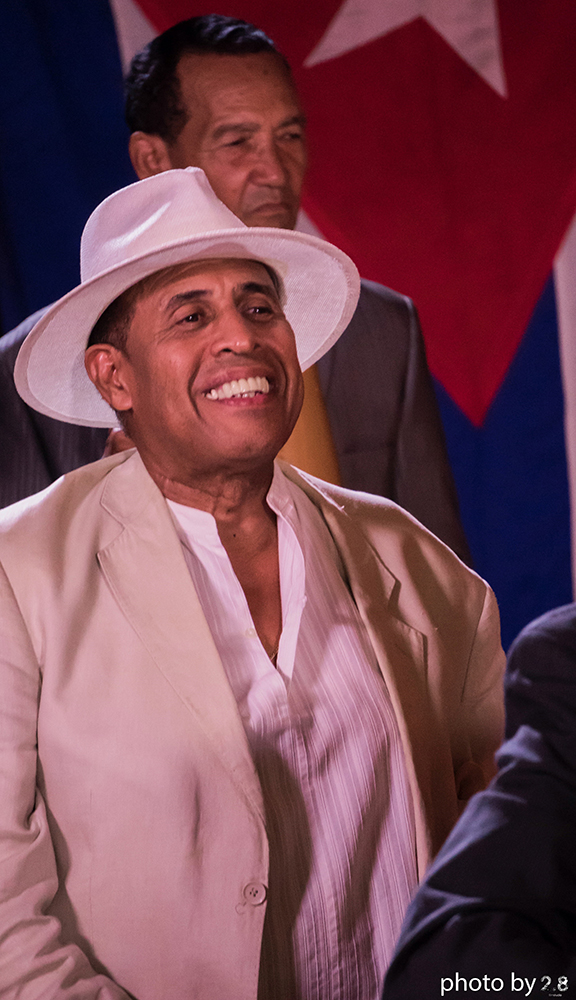Rembert Egües, Director General at Orquesta Sinfónica del Gran Teatro de la Habana, is a notable figure in Cuban music, known for his exceptional skills in orchestration and composition.
Born into a family steeped in musical tradition, Egües inherited a profound love for music from his father, Richard Egües, the celebrated flutist of the revered Orquesta Aragón.
His early exposure to the world of music set the stage for a remarkable journey through the realm of musical artistry.
Egües' formal music education began under his paternal grandfather's guidance, a precursor to his formal studies at the Amadeo Roldán Conservatory. His musical pilgrimage encompassed diverse stages of evolution.
He delved into composition and orchestration, honing his craft under the tutelage of Dr. Frederick Smith in the United States, and later in orchestral conducting under the esteemed guidance of maestro Roberto Valdés Arnau.
As his career blossomed, Egües embarked on an extraordinary odyssey.
The year 1963 marked the beginning of his journey with "Los Chicos del Jazz," a band that laid the foundation for his musical exploration.

During this phase, he composed his maiden film music compositions, including the poignant "En la Otra Isla," sung by the enchanting Omara Portuondo for the documentary by Sara Gómez. His compositions also graced theatrical productions, such as the enthralling "The Twins."
The years that ensued were a crescendo of creativity and collaborations. In 1964, Egües embarked on a musical voyage with the group "Los Armónicos," led by Felipe Dulzaides, imprinting his orchestrational brilliance on their album "Recordar es vivir." His compositions resonated on radio waves and television screens, with Maria Luisa Güell's rendition of his composition "Bachiana" attesting to his enduring melodic imprint.
By 1967, Egües embarked on the endeavor that would meld his passion for music with his sense of duty, joining the Military Armed Forces of the Revolutionary Navy (MGR). His role as a professor and head of political culture in the military unit of 1792 mirrored his commitment to both music and his nation.
The late 1960s witnessed a transition, as Egües embraced his role as a composer, arranger, and conductor within the General Staff of the Revolutionary Armed Forces. His melodic tapestry found fertile ground within the MGR fan movement, establishing his ascendancy in the world of Cuban music.
Throughout the 1970s, Egües' talents became increasingly interwoven with Cuba's cultural fabric. He took on significant roles within the music and cultural sphere, becoming an integral part of renowned entities such as the National Ballet of Cuba. His symphonic compositions found expression in cinematic productions, gracing films such as "El Señor Presidente" by Manuel Octavio Gómez and the iconic "Vampires in Havana" and "More Vampires in Havana," masterpieces by Juan Padrón. His compositions also extended to ballets, with "Muñecos" becoming a testament to his creative diversity.
Egües' devotion to his craft transcended international boundaries, taking him on tours across Europe and leading him to collaborate with esteemed artists. He conducted orchestras in iconic venues like the Kennedy Center and the Metropolitan House in Washington and directed the Bolshoi Theater Orchestra in Moscow, Leningrad, Sofia, and Prague.
His contributions to orchestration and composition were celebrated with numerous accolades, including the prestigious "Gala 87" Festival Orchestration Prize in Cuba, as well as honors from the Song Festival in Poland and Germany.
Throughout his career, Egües' compositions continued to enchant audiences. His legacy was marked by his deep understanding of music's emotive power and his ability to bridge traditional Cuban melodies with innovative arrangements.
Egües' journey has undoubtedly left an indelible mark on Cuban music. From orchestration to composition, from symphonic scores to film music, his sonic odyssey remains a resounding testament to his unparalleled artistry and his ability to traverse musical landscapes with finesse. Rembert Egües, a musical maestro, will forever be celebrated for his contributions to the rich tapestry of Cuban and global music.
